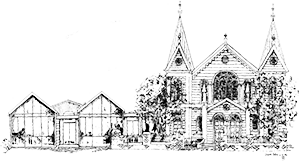Laulotaha- Our Program
Achieving Excellence
Session Details
Laulotaha runs every second and fourth Saturday of the month during school term. It starts at 5.30pm with the first session running from 6.00pm -6.50pm and the second session from 7.00pm – 7.50pm.
One-to-one mentoring
Laulotaha is a one-to-one teaching and learning model delivered by educated volunteers within a family, cultural and church context. Prior to the session each Mentee’s area of need are matched to a Mentor’s strength. The chosen mentor help the student with the subject they are struggling on, as well as mentor and guide them through their chosen career path. The great thing about Laulotaha is that the one-to-one mentoring session allows the student to go at their own pace and to spend more time on a subject they need help in.
Mentee/Parent relationship
Parents are strongly encouraged to attend and to sit alongside their child during mentoring sessions. It is very important that parents are not ignorant about where their child is on an academic level. The foundation of a child’s success is built from the support of their parents.
The Faikava Model
Traditionally, a Faikava is a forum where Tongan men to come together for a meeting for a specific purpose. The purposes can vary these days from conferences, celebrations to a social event or fundraiser. In these forums men usually discuss main issues and each take turn in analysing the topic and providing evidence to back their statements.
Using this framework, Mentee's from Year 7 – Year 13 are put in a Faikava session at least twice during a school term. The purpose of the Laulotaha Faikava sessions is to have robust discussions and debates about English literature. The Faikava facilitator will chose a novel, short story or Shakespearean play that the Mentee’s are currently studying at school and explain a shorter version of it in Tongan. The Mentee’s and their parents are then invited by the Faikava facilitator to analyse and discuss themes, storylines and characters.
In all our sessions we use the NZQA Questions from past years as guidelines to ensure that we are covering the areas that come up in NCEA exams. The Faikava sessions aims to build on and improve the Mentee’s analytical skills.
The Koka'anga Model
The Koka'anga Model in its literal sense is the making of ngatu. Ngatu is the Tongan name for tapa or decorated barkcloth. After a long and involved process of making ngatu, Tongan women decorate the ngatu with a combination of printing and painting. To do this, a koka‘anga (ngatu-making work party) of at least twelve women meet and sit at both sides of a flat or convex table called a papa, usually measuring about 1 x 5 metres. The papa is almost entirely covered by kupesi (pattern boards) that have been tied and glued down to the table. Made from pandanus leaves and part of the coconut frond, kupesi can be rectangular (usually about 35 x 50 cm) or the same shape as the pattern or motif that will be seen on the ngatu. Motifs can be created to commemorate special occasions or can be more abstract.
With the same conception of making tapa, the Koka'anga model builds the capability of the Mothers to be culturally responsive to the needs and aspirations of our Mentee’s. In the Koka’anga session the mothers or female guardians and Mentee’s share and brainstorm a topic the guidance of a facilitator.
The Koka’anga model is designed for Year 1– Year 6 mentee’s. We use the New Zealand Curriculum as a tool for guiding our sessions on where mentee’s learning should be at on an academic level by the end Year 1 – 6. The topics in Koka’anga ranges from reading and writing to historical and current events that have made an impact in our communities and the world we live in today.
The hands on discussions and support of the Mothers in Koka’anga encourage active participation from the Mentee’s with the aim of building their knowledge, confidence, reading, listening and interpretation skills.
